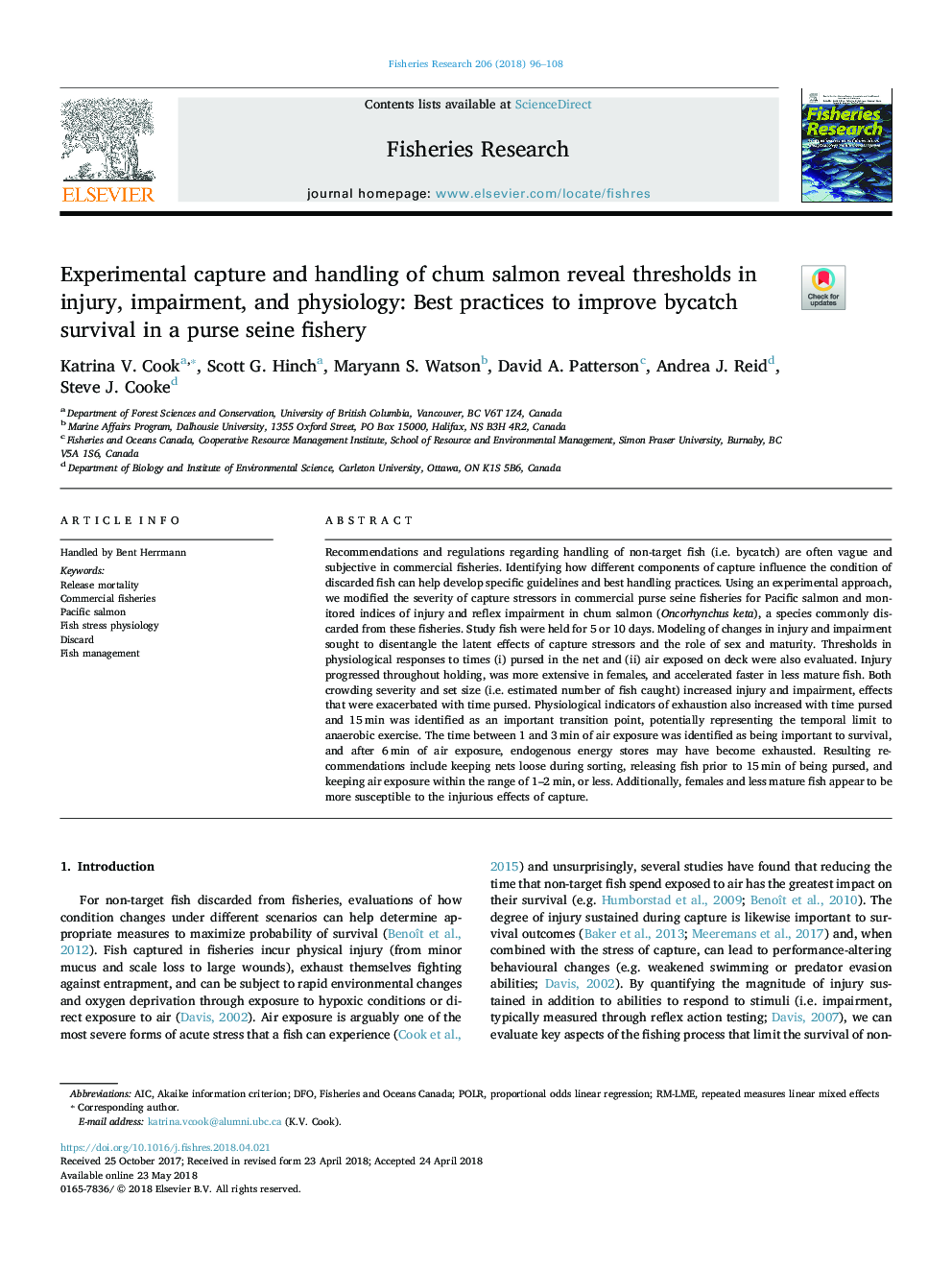| Article ID | Journal | Published Year | Pages | File Type |
|---|---|---|---|---|
| 8885267 | Fisheries Research | 2018 | 13 Pages |
Abstract
Recommendations and regulations regarding handling of non-target fish (i.e. bycatch) are often vague and subjective in commercial fisheries. Identifying how different components of capture influence the condition of discarded fish can help develop specific guidelines and best handling practices. Using an experimental approach, we modified the severity of capture stressors in commercial purse seine fisheries for Pacific salmon and monitored indices of injury and reflex impairment in chum salmon (Oncorhynchus keta), a species commonly discarded from these fisheries. Study fish were held for 5 or 10 days. Modeling of changes in injury and impairment sought to disentangle the latent effects of capture stressors and the role of sex and maturity. Thresholds in physiological responses to times (i) pursed in the net and (ii) air exposed on deck were also evaluated. Injury progressed throughout holding, was more extensive in females, and accelerated faster in less mature fish. Both crowding severity and set size (i.e. estimated number of fish caught) increased injury and impairment, effects that were exacerbated with time pursed. Physiological indicators of exhaustion also increased with time pursed and 15â¯min was identified as an important transition point, potentially representing the temporal limit to anaerobic exercise. The time between 1 and 3â¯min of air exposure was identified as being important to survival, and after 6â¯min of air exposure, endogenous energy stores may have become exhausted. Resulting recommendations include keeping nets loose during sorting, releasing fish prior to 15â¯min of being pursed, and keeping air exposure within the range of 1-2â¯min, or less. Additionally, females and less mature fish appear to be more susceptible to the injurious effects of capture.
Keywords
Related Topics
Life Sciences
Agricultural and Biological Sciences
Aquatic Science
Authors
Katrina V. Cook, Scott G. Hinch, Maryann S. Watson, David A. Patterson, Andrea J. Reid, Steve J. Cooke,
